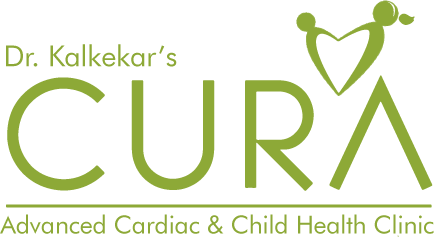Understanding TAVI Device Closure
TAVI (Transcatheter Aortic Valve Implantation): TAVI is a minimally invasive procedure used to replace a diseased aortic valve with a bioprosthetic valve. Instead of open-heart surgery, TAVI is performed by threading a catheter through a blood vessel, usually in the groin, to reach the heart. The new valve is then expanded in place, restoring normal blood flow.
Device Closure: Device closure refers to the minimally invasive closure of structural heart defects, such as atrial septal defects (ASD) and ventricular septal defects (VSD), using special devices. These devices are introduced into the heart through catheters, eliminating the need for open-heart surgery.
Why TAVI Device Closure is Done
TAVI is performed for several reasons:
1. Aortic Stenosis: TAVI is often recommended for individuals with severe aortic stenosis (narrowing of the aortic valve) who are considered high-risk or inoperable for traditional open-heart surgery.
2. Minimally Invasive : TAVI offers a less invasive alternative to open-heart surgery, reducing recovery time and complications.
Device Closure : Device closure is performed for congenital heart defects, including:
1. Atrial Septal Defect (ASD) : A hole in the wall (septum) that separates the heart's two upper chambers (atria).
2. Ventricular Septal Defect (VSD) : A hole in the wall that separates the heart's two lower chambers (ventricles).
Indications for TAVI Device Closure
TAVI: Indications for TAVI include:
- Severe aortic stenosis with symptoms like chest pain, fatigue, and shortness of breath.
- High surgical risk or inoperable status for traditional valve replacement surgery.
Device Closure : Indications for device closure include:
- Large atrial or ventricular septal defects causing symptoms.
- Right heart enlargement due to the defect.
- Risk of complications such as stroke or pulmonary hypertension.
Who Is Not A Candidate For TAVI
Your doctor is the best person to tell who should and should not go for a TAVI procedure. Some of the Contraindications for TAVI may include:
- Anatomical factors that make TAVI technically challenging.
- Unsuitable valve anatomy for TAVI.
Device Closure : Contraindications for device closure may include:
- High surgical risk due to other medical conditions.
- Unfavorable defect anatomy.
- Patient preferences that may influence the choice of treatment.
Why Choose Cura Clinic
Dr. Sanjeevkumar at Cura Clinic is a renowned specialist in TAVI in Seawoods and Mumbai. He brings a wealth of experience and expertise to Cura Clinic Seawoods:
1. Extensive Experience : Dr. Sanjeevkumar has performed numerous successful TAVI and device closure procedures, earning a reputation for precision and positive patient outcomes.
2. Cutting-Edge Technology : Dr. Sanjeevkumar utilizes state-of-the-art equipment and techniques to ensure the highest level of accuracy and safety during procedures.
3. Patient-Centered Care : He is known for his patient-centric approach, tailoring treatment plans to individual needs and preferences.
4. Collaborative Care : Dr. Sanjeevkumar works closely with a multidisciplinary team of healthcare professionals to provide comprehensive cardiac care.
Dr. Sanjeevkumar's expertise in TAVI and device closure procedures ensures that patients not only Seawoods but also Mumbai and its vicinity have access to cutting-edge, minimally invasive cardiac treatments. Whether you require TAVI for aortic stenosis or device closure for congenital heart defects, Dr. Sanjeevkumar's experience and dedication to patient well-being make him a trusted specialist in the field. Your heart health is in capable hands at Cura Clinic Seawoods.
-Treatment.jpg)



